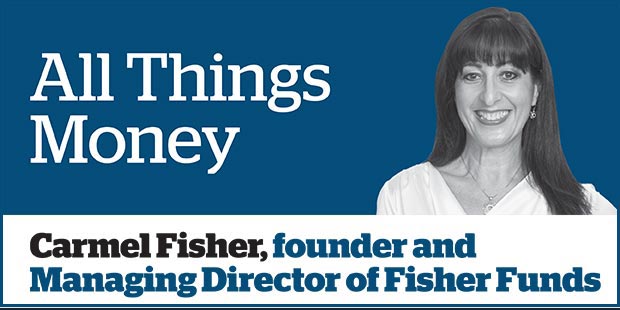The thought of asking for advice leaves some of us cold, particularly when it's about our hard-earned money. Ideally, our perfect financial advisor might not provide advice at all but simply be someone to listen, sense-check our ideas or hold our hand in uncertain times.
Willingness to ask for advice can also depend on the climate - when markets are rallying, we may think we can do it on our own but, when our investment bets don't work so well, we might be interested in a second opinion.
Our expectations and experiences can also have an impact. Some investors who have acted on advice in the past can perhaps wonder why they wasted good money on that advice.
Advice is just that. It is an opinion provided with the very best intentions, based on logic and disciplined thinking - but the outcome cannot be guaranteed.
So how can we get the best out of financial advice?
The first step is to determine what kind of help you need. Without knowing what assistance you require, you may end up paying too much for unnecessary services. For example, you may just want help with asset allocation - getting the right mix of assets to suit your age and risk tolerance - and then be happy to pick your own individual investments. You may want a comprehensive financial plan prepared and then be left to implement it at your leisure. Or you may want an investment portfolio created for you, then monitored and regularly reported on.
You should also consider how comfortable you are with financial matters. If money is not really your thing, it may make sense to pay for a professional's service. But if you feel you know the basics of investing and planning, you may be able to build much of your portfolio on your own without paying set-up and ongoing fees.
You do need to commit to putting in some time and effort. To be a successful investor, you don't have to spend every waking hour following markets but you need to put in a few days work initially and at least a few hours each month monitoring your holdings. If you can't put in even this minimal amount, you are probably better off getting help.
Over the years I have been asked on many occasions to recommend a good adviser; I have often struggled to answer. Not because there aren't any good ones but because the selection of the best adviser will depend on your individual circumstances and what you want from your adviser.
Notwithstanding the personal nature of adviser-client relationship, there are some general observations that can be made about selecting an adviser.
For a start, remember you cannot abdicate all responsibility - an adviser can help but, at the end of the day, it's your money and you must feel responsible for it.
You don't have to make the choice alone. Just as you would seek other opinions before you chose your doctor or your lawyer, you should ask friends, family and colleagues if they can recommend a good adviser who has treated them well.
A good starting point is the Financial Markets Authority (www.fma.govt.nz). They have a searchable database of authorised financial advisers (AFAs) in your area.
Arrange to meet with your short list of two or three and ask some questions which should reveal if they are right for you. Ask them to describe their business and client mix and see if it sounds like you. If they specialise in retirees and you are in your 30s, maybe you should keep looking.
Don't hesitate to ask about their experience. How have their clients done? Are any prepared to offer references? Do a search online and make sure they don't have any public skeletons in the closet.
Aside from the obvious considerations - credentials, fees and long-term track record - it is important the person 'feels right'. Trust your judgement.
If you find an adviser you like, with a good track record, who you can understand and who charges fairly, that's really not a bad place to start.

